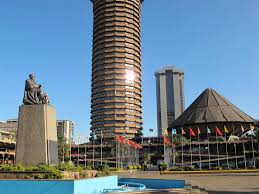Kenya is set to privatise 35 state-owned enterprises to partially help the government raise revenue in the face of growing debt repayments.
In October 2023, the Kenyan government revised the law governing the sale of state companies to eliminate bureaucratic hurdles that were making the process grind to a halt.
A change in the privatisation laws of Kenya has empowered the National Treasury to expedite the privatisation of state-owned enterprises without seeking approval from Parliament this year (2024).
President William Ruto announced that 35 state-owned enterprises were slated for privatisation. Among them are the Kenya Pipeline Company and the Kenyatta International Conference Centre (KICC), which are wholly owned by the government.
If successful, Ruto might be the second Kenyan president to privatise any public company. In 2008, during the tenure of President Mwai Kibaki, Safaricom was successfully privatised. He also oversaw the sale of shares in several state-controlled firms, such as Mumias Sugar, Kenya Reinsurance, and Kengen.
Kenyan privatization proponents contend that by raising money through the sale of assets, they will help the government’s finances, which are already being squeezed by rising debt payments that have forced the government to raise taxes.
According to data compiled from official sources by Statista, Kenya’s national debt escalated from $35.39 billion in 2018 to $55.08 billion in 2021 and $71.48 billionn in 2023. Kenya’s national debt is expected to rise steadily by $36.7 billion between 2023 and 2028, according to a worldwide research group.
Kiprono Kittony, chairman of the board of directors of the Nairobi Securities Exchange (NSE), was quoted as saying, “The timing is right. Like many frontier economies, Kenya is faced with a huge debt burden. “Why should the government be so indebted when it has its own assets?”
However, according to Kwame Owino, CEO of the Institute of Economic Affairs (IEA), a think tank that fosters informed debates to influence public policy in Kenya, privatisation has been unsuccessful in Kenya and other East African countries due to various political obstacles, such as public resistance arising from a lack of trust in the process.
Owino noted that another impediment to the privatisation process is the silent but powerful opposition of some government officials, who may not want to relinquish the benefits and advantages that come with owning parastatals.
Some state-owned enterprises, such as Kenya Airways (KQ), may face low investor interest due to their unviable business models and long history of operating unprofitably.
KQ, in which the government owns a 48.9% stake, has been draining public funds without giving any return on investment for many years. According to the auditor general, the Treasury gave the national carrier Sh16.27bn ($100m) in 2022 without any loan agreement or recovery mechanism, highlighting the adverse impact of loss-making entities on the government’s finances.
However, opposition leader Raila Odinga’s party, the Orange Democratic Movement, has challenged the amended privatisation laws in court, arguing that the process should be subjected to a referendum due to the strategic significance of the firms listed for sale. particularly for assets like the Nairobi-based KICC. The iconic conference center is a key part of the country’s national heritage, even featuring prominently on bank notes.
On the other hand, Kenya needs to remain in the good graces of its main creditors, particularly the World Bank and the IMF, who have been urging the country to get rid of unprofitable state agencies and merge those that have overlapping functions. The privatisation of these firms is crucial for Kenya to maintain its good standing with its lenders.



